Huawei P30 Pro review: much more than just the best camera
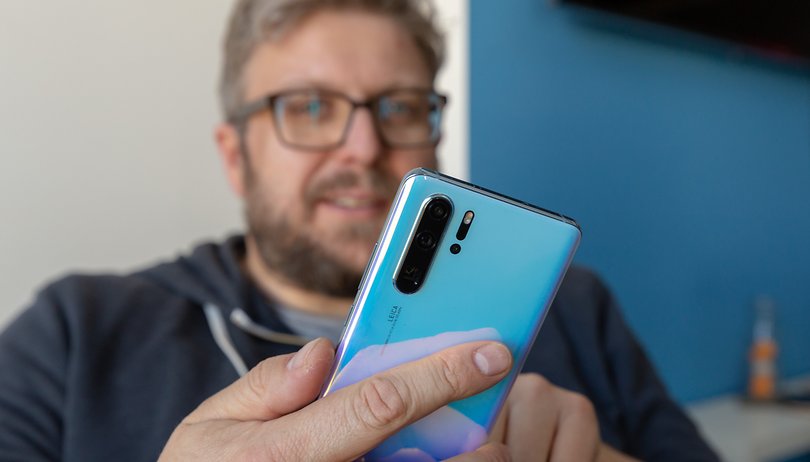

Huawei's smartphone division is riding on a wave of success that picked up speed last year with the introduction of the P20 series. However, Huawei is not resting on its laurels, it is reaching for the stars with the new P30 Pro. In our full review of the Huawei P30 Pro, you can find out what technical refinements the Chinese manufacturer tries to impress smartphone users with.
Good
- Impeccable workmanship
- Enormously versatile camera
- Great low-light photos
- Extremely strong battery
Bad
- Scratches easily
- Too many unnecessary apps
- Aggressive RAM management
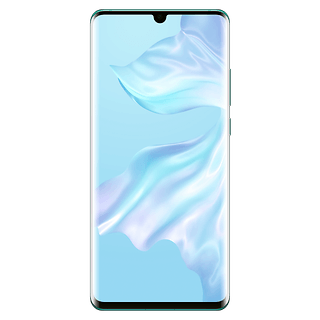
Huawei P30 Pro release date and price
The Huawei P30 Pro will have two variants - one with 8 GB of RAM and 128 GB of storage, and one with 8 GB RAM combined with 256 GB of storage. In the UK, the P30 Pro launches on April 5th. It is available from EE, Vodafone, Sky Mobile and Carphone Warehouse. The 128GB variant costs £899 and the 512Gb version will set you back £1,099.
Optical fine tuning
In terms of looks and feel, a lot has changed for Huawei's flagships in recent years. The Chinese manufacturer has shown a lot of courage, especially when it comes to colors. And that courage was rewarded with a total of 16 million Huawei P20 and P20 Pro sales in 2018. The Twilight color variant sold best in the UK, Italy and Portugal.
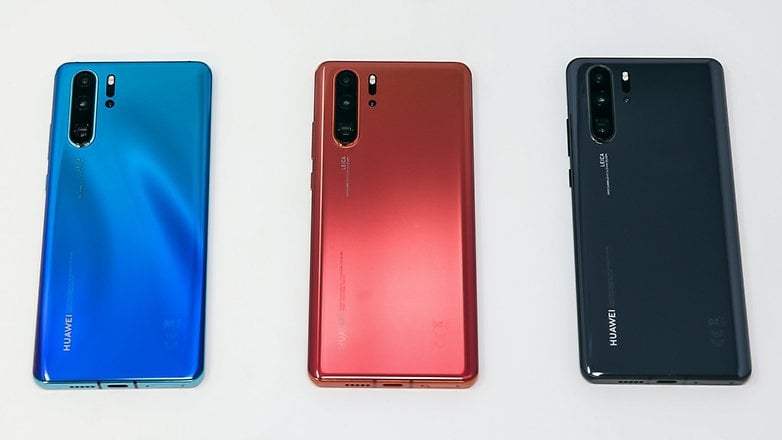
For its successor, the Huawei P30 Pro, the Chinese brand is expanding the gradient variety. Instead of one, there are now three dazzling variants. The palette ranges from classic black to Permute White, Breathing Crystal, Amber Sunlight and Aurora. The availability of the colors varies from region to region. In Germany, for example, there will be no Mother-of-pearl white.
Putting color variants aside, the Huawei P30 Pro is a pretty large smartphone. The reason is that Huawei has given the new smartphone a 6.47-inch AMOLED panel with curved edges. And to give the P30 Pro a slimmer profile, the edges on the back are also curved.
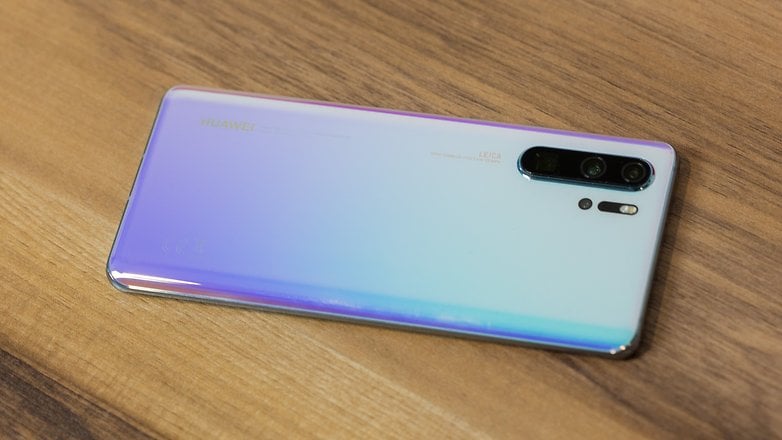
What is good about the design of the Huawei P30 Pro
The new colors look great, especially the orange-red version of the Huawei smartphone. It's a real eye-catcher. Apart from the look, the craftsmanship is impressive. The P30 Pro looks and feels high-quality. And although IP68 certification is becoming the standard, it is still worthy of praise.
What is bad about the design of the Huawei P30 Pro
That would be the shape. The P30 Pro is quite wide and therefore a bit more unwieldy than the Mate 20 Pro. But you quickly get used to it. What worries me more is that the smartphone quickly accumulates fine scratches, both on the back and on the display. Therefore, I strongly recommend that you equip the P30 Pro with a suitable case.
A massive display with a smaller notch
For the display of the P30 Pro, Huawei has opted only for Full HD+, but despite the huge screen diagonal of 6.47 inches, the picture appears very clear. The AMOLED technology also ensures intense colors and very good black values, which are typical for this type of panel. The brightness is enormously high and the viewing angle stability also gives no cause for criticism.
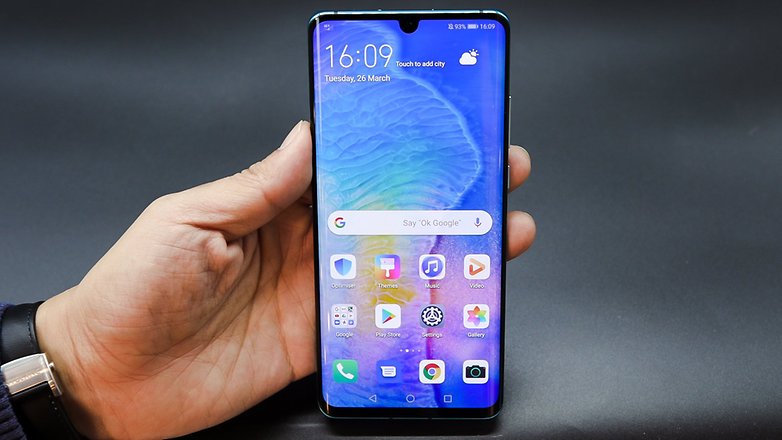
The notch on the P30 Pro has also become much smaller. The reason for that is that Huawei has decided not to use the facial recognition camera found on the Mate 20 Pro. You will not find a conventional telephone loudspeaker either. Instead, Huawei makes the display oscillate and uses part of it as a loudspeaker.
What is good about the display of the Huawei P30 Pro
Huawei uses an AMOLED panel of excellent quality in the P30 Pro, and its strengths are fully utilized. Contrasts and colors are great. The sharpness is so good that I don't miss a higher resolution. The huge display is also perfect for movies and games.
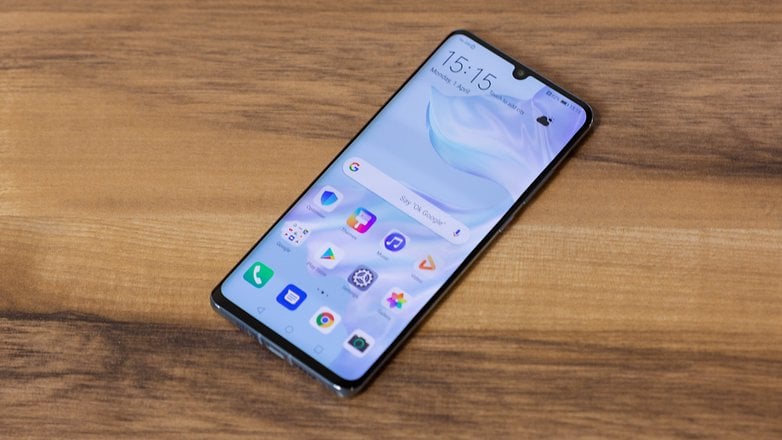
What is bad about the display of the Huawei P30 Pro
There are only small things that I can criticize when it comes to the display of the P30 Pro. The minimum brightness is still too bright for me in really dark rooms. The slight bend at the edges can also be a bit annoying because it distorts the picture a little here and there. But in general, the display is excellent.
Huawei cooks its own soup with EMUI
There hardly are any surprises when it comes to software, as Huawei naturally uses its own user interface EMUI on the P30 Pro. It's available in version 9.1 on the P30 Pro and it's based on Android 9.1. EMUI meshes comparatively strongly with Android. It is very noticeable not only thanks to its appearance but also due to many of its own functions. However, the interface is not always well-received by all users. Many prefer the tidy look of a more stock-like Android and simply don't need many of EMUI's own functions.
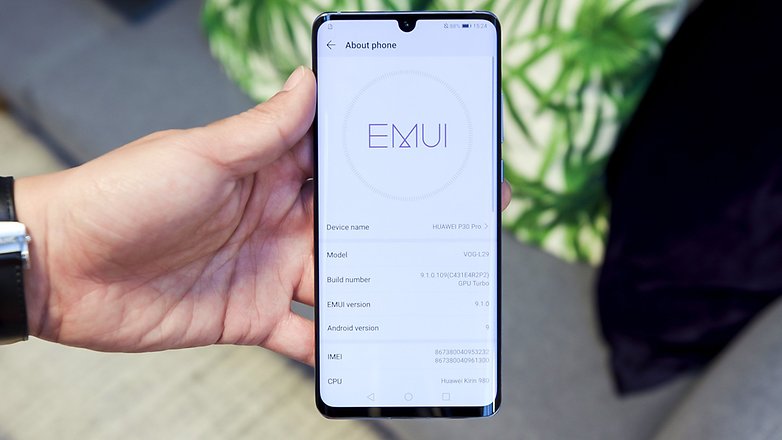
Huawei still spared us from its own language assistant as an alternative to Google Assistant. The manufacturer currently only offers it in China. For the customers in Europe, this is the correct decision.
Some functions, which were shown at the unveiling of the Huawei P30 Pro, are not yet on board at launch, but will be delivered in the coming weeks. This also includes the new video feature, which allows simultaneous filming with zoom and normal focal length. Huawei communicated this clearly and proactively during the presentation. Not every manufacturer does that, so no lost marks for this.
What is good about the Software on the Huawei P30 Pro
With Version 9, Huawei has significantly streamlined EMUI, made it faster and increased operating comfort. This makes the system easier to use than before. I also like the adaptability. I've come to terms with most things in EMUI over time.
What is bad about the Software on the Huawei P30 Pro
Huawei is increasingly relying on its own apps for almost everything that Google offers in its mandatory apps for Android. The Huawei P30 Pro even has its own browser on board, as well as its own App Store. That would bother me less if you could uninstall or at least deactivate these apps, but that doesn't work. It's an incomprehensible strategy, which makes unnecessary work for the manufacturer and offers me, as a customer, no added value.
Another topic in EMUI is still the rather aggressive RAM management, which leads to apps being closed comparatively quickly in the background and then possibly not working properly anymore. This can usually be fixed with the right settings, but they are buried in the menus. Overall, EMUI is not necessarily the fastest system, and Huawei could learn a lot from OnePlus in this respect.
Huawei's modular system
The basic technical platform for the Huawei P30 Pro is supplied by the Mate 20 Pro. The Kirin 980 SoC, including dual NPU, Mali G76 MP10 GPU, 8GB of RAM and depending on the variant you choose, internal storage of 128/ 256 or 512 GB. If you want to expand the memory, you'll have to use the new Nano SD card, just like with the Mate 20 Pro (these are currently only available from Huawei itself). With this hardware under the hood, the Huawei P30 Pro is on a par with the Mate 20 Pro in terms of performance.
If you compare the benchmark results of the P30 Pro with the Galaxy S10+ from Samsung, you can see that the Kirin 980 is behind the newer Exynos 9820 in most regards. Yet, in practice, the new Huawei smartphone is always in control of the situation in the tests and on the go.
Huawei P30: benchmark comparison
| Huawei P30 Pro | Samsung Galaxy S10+ | |
|---|---|---|
| 3DMark Sling Shot Extreme | 3.990 | 4.371 |
| 3DMark Sling Shot Vulkan | 3.995 | 4.276 |
| 3DMark Sling Shot | 3.228 | 4.503 |
| 3DMark Ice Storm Unlimited | 35.981 | 56.128 |
| Geekbench 4 (Single / Multi-Core) | 3.283 / 9.750 | 4.175 / 10.031 |
| PassMark Memory | 30.190 | 19.777 |
What is good about the performance of the Huawei P30 Pro
Actually, everything. If you look at the performance in everyday life, the smartphone reacts quickly and fluidly and shows no annoying dropouts or seconds of stuttering. It does everything it should. Apps start without delay - I didn't experience any crashes or similar unpleasant things during my Huawei P30 Pro review process. Games were fun too. With this smartphone, you will still be having fun in two or three years.
What is bad about the performance of the Huawei P30 Pro
While the performance of using the smartphone is always good, I have to put the blame on Huawei for not using 3D face recognition. The P30 Pro only scans in 2D from the front camera, which is less reliable and a little slower than the Mate 20 Pro. In the dark, you can forget the face scan, and even with sunglasses, the smartphone doesn't recognize me.
The alternative is using your fingerprint. Unfortunately, it also doesn't work very reliably and only recognizes my finger with a success rate of about 70 percent. That's why I'm not really satisfied with the mixed results on the biometric side.
Mono sound and no headphone jack
When it comes to audio, Huawei does not use a 3.5mm jack. In keeping with the spirit of the times, it has instead placed a USB-C headset and an adapter in the box. Both are of average quality, but are better than nothing. The speaker integrated into the display works without any problems when making calls, the voice quality is good. But if you listen to music on your smartphone, you'll have to make do with a mono speaker. It now sits next to the USB port instead of inside it. This is good for the sound.
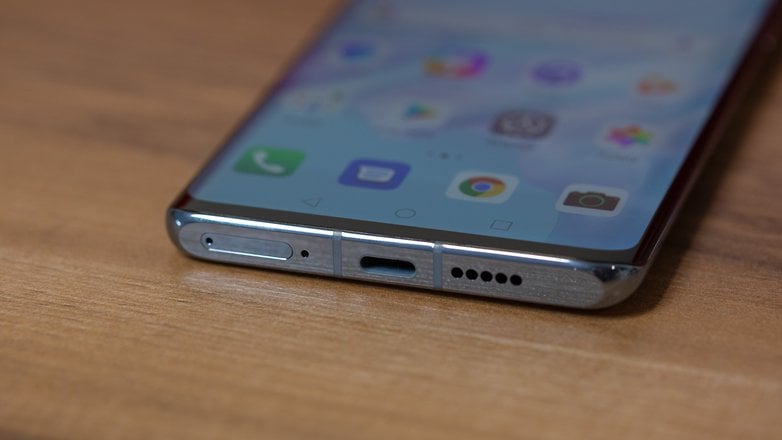
The camera of the P30 Pro is always ready to go
Since the P9, Huawei's P-Series has stood for smartphones designed for photography. This is also the case with the P30 Pro. The main camera now consists of four image capturing components:
- 40 MP Super Spectrum Sensor with a focal length of 27 mm, an aperture of f1.6 and optical image stabilization
- 20 MP Ultrawide camera (over 120 degrees FOV) with a focal length of 16 mm, f2.4
- 8 MP zoom camera (5x optical 10x hybrid) with a focal length of 125mm, f3.4 OIS
- Time of Flight camera for depth information
In order to not only chase megapixels, large apertures and even more camera units, Huawei has considered breaking traditions with old image sensors. The new Super Spectrum Sensor is a typical image sensor with Bayer filter, but to increase light sensitivity already on the sensor level, the green pixels have been exchanged for yellow ones.
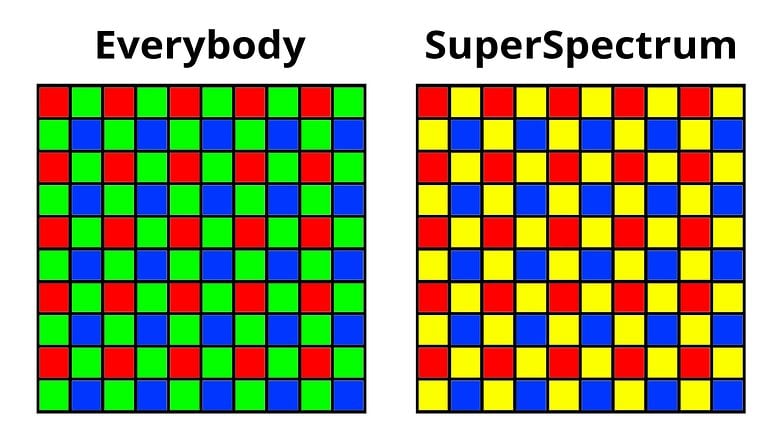
The result becomes apparent in the insane ISO value of 409,600. For comparison: the Huawei P20 Pro or even a Canon 5D Mark IV reach a maximum ISO value of 102,400. Only a Sony Alpha A7S Mark II with a full-frame sensor achieves this crazy ISO value.
But why didn't any other manufacturer, no matter if it was a smartphone or a full-fledged camera, just use yellow pixels instead of green ones? And why change the familiar Bayer filter when it has proven its worth over the decades? Because the effort involved in development, production and also in everyday life was probably too high for the recalculation of the green component. Huawei, therefore, has to recalculate the green color information missing from the raw sensor data with the help of signal processors and software.
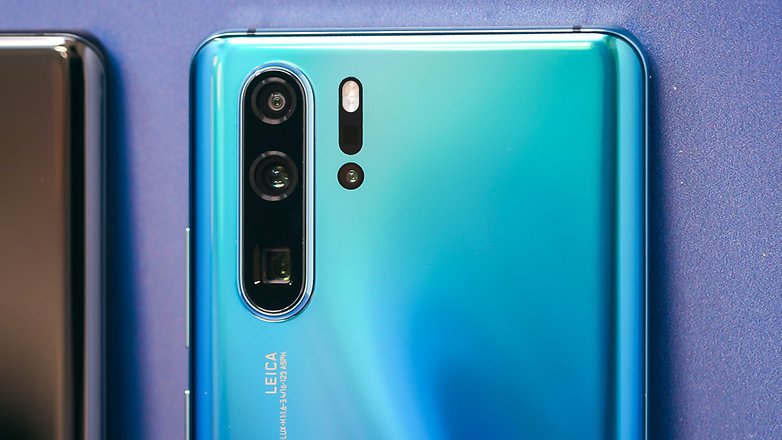 With three cameras, the P30 Pro captures any subject, near or far.
/ © NextPit
With three cameras, the P30 Pro captures any subject, near or far.
/ © NextPit
From panorama, to tele and macro photography - everything is included
The new Super Spectrum Sensor is only one innovation on the Huawei P30 Pro. It has also adopted the 20 MP Ultrawide Sensor from the Mate 20 Pro. Thanks to a viewing angle of more than 120 degrees, panorama-like images can be captured. This camera unit can also be used to take macro shots where the subject is only 2.5 cm in front of it. The Time of Flight sensor allows you to take beautiful pictures with depth-of-field effects.
Things get exciting with the new telephoto unit. Since the zoom lenses consist of several lens elements, Huawei had to opt for an unusual design, otherwise the camera projection would have been higher than desired. The trick lies in a prism that is placed in front of the actual lens. This deflects the incident light at 90 degrees so that it drifts onto a correspondingly placed sensor. The trick is not entirely new, because OPPO presented such a solution as a technology preview at MWC 2017 and announced series availability at MWC 2019. The Huawei solution includes a 5x optical zoom, up to 10x hybrid zoom and even a 50x digital zoom. The zoom lens has an optical image stabilizer to minimize blurring.
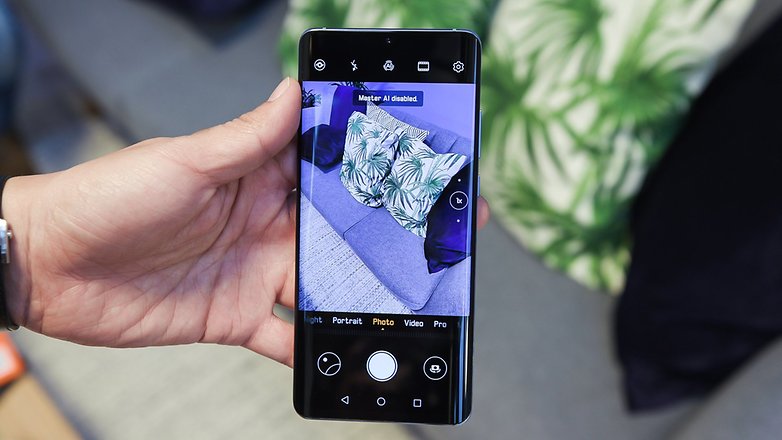
What is pleasing, at first glance, is a seemingly trivial change for everyday life. In the camera app, you can immediately decide whether you want to take a photo with the help of artificial intelligence or not. Gone are the days when you had to immerse yourself in the app's settings each time to deactivate the master AI.
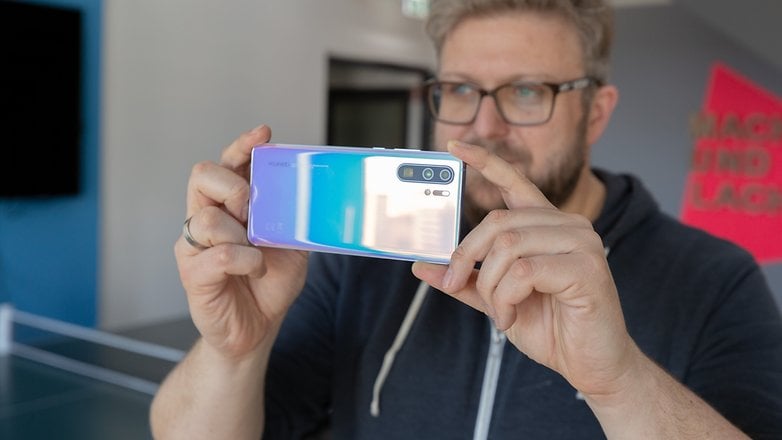
What is good about the camera of the Huawei P30 Pro
With three different focal lengths, plus hybrid zoom and 50x digital magnification, the P30 pro's camera is incredibly versatile. What's more, the quality of the zoom shots in particular for this level of magnification, and the fact that we're still talking about a smartphone camera, is simply outstanding. Taking pictures with the P30 Pro is just incredibly fun.
This is also due to the second discipline in which Huawei sets standards: low light. Google's night mode is already impressive, but Huawei is adding another one to the P30 Pro, and without any mode of its own. The camera of the P30 Pro conjures images onto the sensor in almost complete darkness, making it a real pleasure. You can forget the night mode that Huawei still has. This camera is a quantum leap in terms of low-light.

Read more about this in our camera test of the Huawei P30 Pro. Many pictures we took with the P30 Pro can also be found at the following link:
- See the photos we took with the Huawei P30 Pro
What is bad about the camera of the Huawei P30 Pro
If I have to criticize something about the camera of the P30 Pro, then it would be the video functions. Other manufacturers still do a better job here, even though Huawei has improved its image stabilization. Also, as with Honor, I would like Huawei to give me the option to turn off the AI effects in the gallery after I have taken a photo.
The battery of the P30 Pro doesn't run out of gas
So that the P30 Pro doesn't run out of juice quickly, Huawei has equipped the smartphone with a 4,200 mAh battery , which is charged by cable with 40 watts and wirelessly with 15 watts. The reverse charge function from the Mate 20 Pro is also on board. In theory, the Huawei P30 Pro should have an excellent battery life - and it actually does. More than 14 hours in PCMark's battery benchmark at medium brightness are enormous, even with the display fully turned up it's just under nine hours. Hardly any smartphone can keep up with this. In my test, the P30 Pro regularly only needed to be recharged after two days - that's a real relief.
What is good about the battery of the Huawei P30 Pro
The battery life of the P30 Pro with a single charge is fantastic, especially if you've used a smartphone that really disappointed you previously. Huawei's fast-charging technology is extremely quick and has saved me more than once a day, or usually an evening. Reverse wireless charging, on the other hand, is a nice gimmick when you want to impress someone with what your smartphone can do.
What is bad about the battery of the Huawei P30 Pro
Nothing. Honestly, nothing.
Huawei P30 Pro technical specifications
Final verdict
The P30 Pro has set the bar extremely high for smartphone cameras. Its competitors, such as the Google Pixel 3 XL, Apple iPhone XS or the new Galaxy S10 models from Samsung, have to stretch themselves to keep up. Whether it's zoom, AI functions or - above all - low-light, Huawei seems to be a huge step ahead of the competition. It's easy for me to cope with the fact that the video performance can't quite keep up, because we're still talking about a really good level here.
But the camera isn't everything. The P30 Pro looks seductively good, has a current and regularly maintained Android version, plenty of memory and great performance. The battery performance is also outstanding compared to other flagship smartphones. Only the software lags a bit behind the hardware. Here, Huawei has room for improvement and a lot of potential. If the Chinese manufacturer can get this under control, the competition should be very worried.
The bottom line: I can offer a clear recommendation to buy this smartphone.

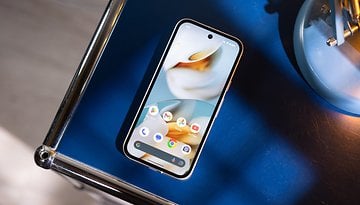
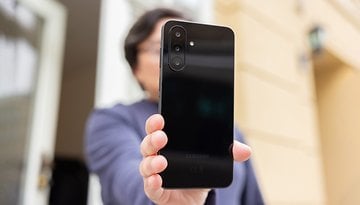
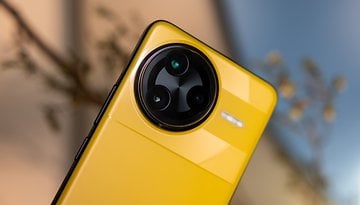
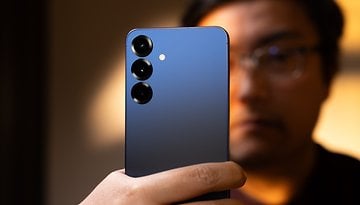
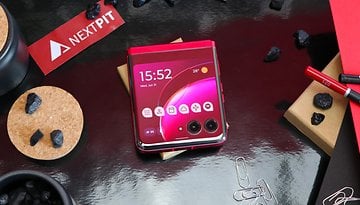

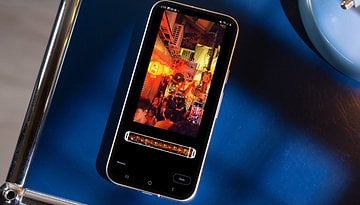
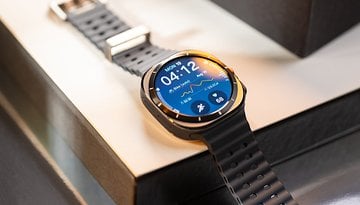


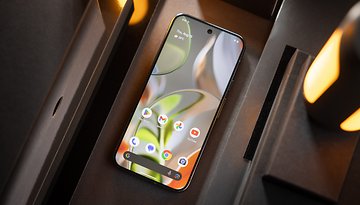


I just ordered my Breathing Crystal P30 Pro. I gave my iPhone X to my mom.
Best phone out now, already preordered.
Here is a question: hardly anyone indicates whether these phones are dual sim standby or have dual sim active - why is no-one looking into this when reviewing the phones?
For me this is a killer feature as i not only want to distinguish between private and business phone calls, but also between private and business whatsapp..
Hi Pascal,
you do not need both cards to be active to use WhatsApp with two numbers. You simply need to register both numbers with WhatsApp. The app does not care what data connection you are using after registering.
Sorry if these seem like stupid questions, but I've heard conflicting stories concerning Huawei. Is it safe to own these phones? Is it a trustworthy company as far as whatever claims are being made about what the Chinese are doing with these phones. I'm asking because I like the phones but am afraid to buy them. What do you think? Is it a hoax?
no it is not a hoax - sending user data is a real problem when using android/chinese phones. Fortunately this can be remediated by installing a local blocker app (don't remember the name)
There is zero evidence to back up any of the allegations, Huaweis are safer than any phone using proven American sp y chips that's for sure.